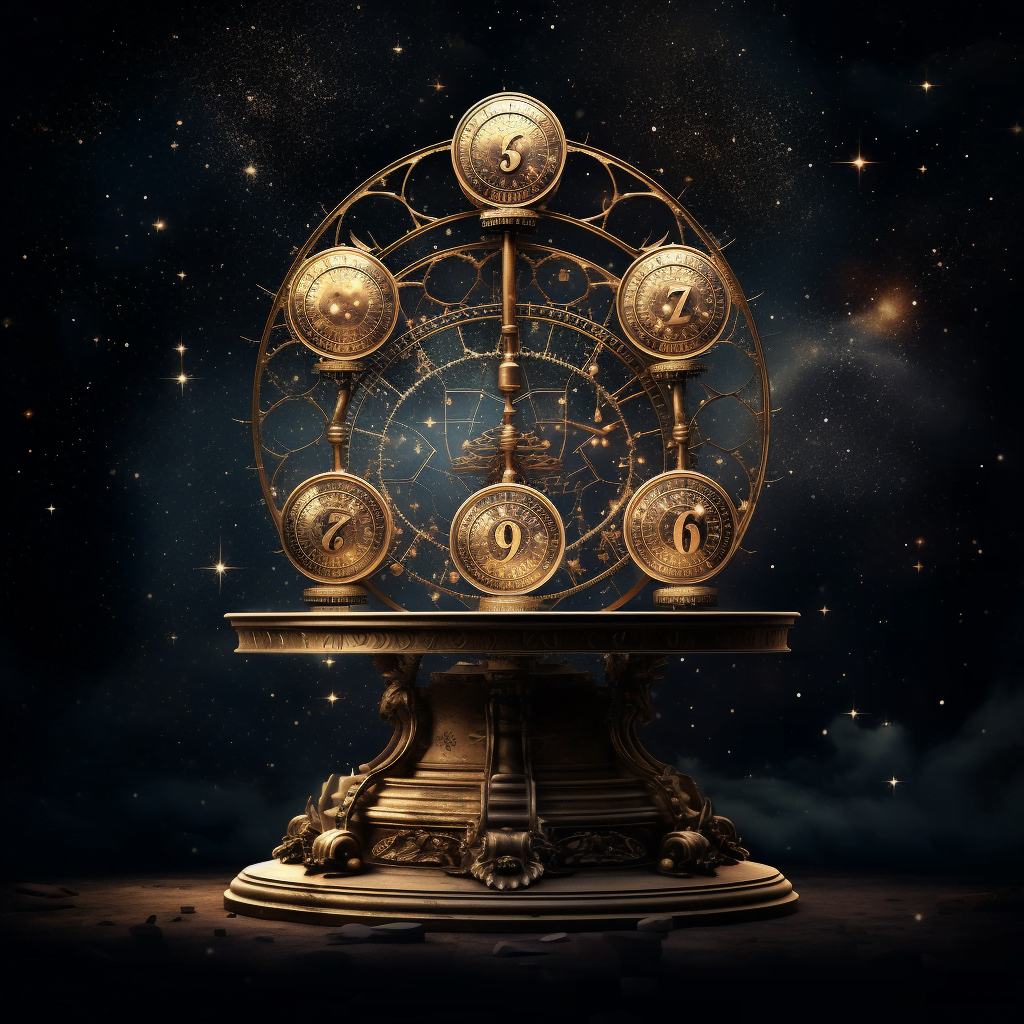In exploring the intricate correlation between belief in astrology and intelligence levels, this article seeks to uncover whether there exists a substantive connection between the two. Astrology, a divinatory practice founded on the notion that celestial bodies influence human affairs, has been both fiercely embraced and vehemently scorned by individuals. By delving into this topic, we aim to decipher whether those who adhere to astrological beliefs exhibit lower intelligence levels, utilizing empirical evidence and psychological insights. While intellectual capacity should not be solely determined by faith or skepticism in astrology, understanding the potential correlation between these two elements is crucial for the broader discourse on belief systems and cognitive abilities.
Research on the Link between Belief in Astrology and Intelligence
Existing Studies on Astrology and Intelligence
Several studies have been conducted to investigate the relationship between belief in astrology and intelligence. These studies aim to analyze whether there is a correlation between individuals who believe in astrology and the level of their intelligence. The debate surrounding this topic has attracted considerable attention, as it combines the realms of astrology, psychology, and cognitive sciences.
Methods Used in the Studies
The studies examining the link between belief in astrology and intelligence employed various research methods and measurement tools. Quantitative surveys and questionnaires were frequently used to gather data from participants, assessing their beliefs in astrology and their intelligence levels. Additionally, some studies employed standardized intelligence tests, such as the Wechsler Intelligence Scale, to obtain more objective measures of intelligence.
Findings of the Studies
The findings of the existing studies on the relationship between astrology belief and intelligence are somewhat varied. Some studies reported a weak negative correlation between belief in astrology and intelligence, suggesting that individuals with higher levels of intelligence tended to have lower belief in astrology. However, it is important to note that these correlations are small and not statistically significant in some studies. Conversely, a few studies have found no significant correlation between astrology belief and intelligence.
Critique of the Studies
While the existing research provides some insights into the link between belief in astrology and intelligence, it is essential to critically evaluate the limitations of these studies. Firstly, assessing intelligence solely through standardized tests may not capture the multidimensional nature of intelligence and its various components. Moreover, the self-report nature of the surveys used may introduce biases and social desirability effects, influencing participants to present themselves in a favorable light. Additionally, the studies often rely on small and limited samples, making it challenging to generalize the findings to broader populations.
Understanding Astrology and Belief Systems
What is Astrology?
Astrology is a belief system that posits a connection between celestial phenomena and human affairs. It is based on the notion that the positions and movements of celestial bodies, such as planets and stars, can influence individual characteristics, events, and personalities. Astrological beliefs are rooted in the idea that human lives are interconnected with cosmic forces and that these forces can be interpreted through astrological charts and horoscopes.
Different Types of Astrology
There are various forms of astrology practiced across cultures and traditions. Western astrology, commonly known as sun sign astrology, focuses on the alignment of the sun at the time of an individual’s birth. It classifies individuals into twelve zodiac signs, each associated with specific personality traits and predictions. In contrast, Vedic astrology, commonly practiced in India, emphasizes the positions of the planets at the time of birth and takes into account lunar constellations and unique astrological charts.
Belief Systems and their Influence on Individuals
Belief systems, including astrology, play a significant role in shaping individuals’ perceptions, behaviors, and decision-making processes. They provide a framework for understanding the world and offer explanations for both personal experiences and broader societal phenomena. Beliefs are often influenced by cultural, social, and personal factors, and can vary greatly across different individuals and communities. Astrology, like other belief systems, holds the potential to provide individuals with a sense of purpose, guidance, and even reassurance in uncertain or challenging times.
Intelligence and its Measurement
Defining Intelligence
Intelligence can be broadly defined as the capacity for understanding, reasoning, problem-solving, and adapting to one’s environment. However, there is ongoing debate among researchers regarding the precise definition and nature of intelligence. Some argue that intelligence is a single, general cognitive ability, while others propose a more multifaceted view, considering multiple intelligences, such as linguistic, logical-mathematical, and spatial abilities.
Various Approaches to Measuring Intelligence
The measurement of intelligence has been approached through various methods throughout history. Traditional intelligence tests, such as the IQ (Intelligence Quotient) tests, aim to assess a person’s cognitive abilities across different domains. These tests typically involve tasks that measure verbal comprehension, working memory, perceptual reasoning, and processing speed. However, critics argue that these tests may not capture the full spectrum of human intelligence, as they prioritize certain cognitive skills over others.
Limitations of Intelligence Measurement
While intelligence tests provide a quantitative measure of cognitive abilities, it is important to acknowledge their limitations. The current methods of measuring intelligence often overlook non-cognitive factors that contribute to intelligence, such as creativity, emotional intelligence, and social skills. Additionally, cultural biases embedded within these tests may lead to inaccurate assessments for individuals from different cultural backgrounds. Thus, intelligence measurement should be regarded as an evolving field that requires careful consideration of its limitations and the broader context in which it is used.
Factors Influencing Belief in Astrology
Psychological Perspectives
Belief in astrology can be influenced by various psychological factors. For some individuals, astrology provides a sense of meaning and purpose in their lives, offering explanations for personal experiences and events. The need to attribute events to external factors, such as celestial bodies, may stem from a desire to understand and make sense of the world around them. Additionally, personality traits such as openness to experience and the desire to explore the unknown have been found to influence the adoption of astrological beliefs.
Sociocultural Factors
Sociocultural factors also play a significant role in shaping beliefs in astrology. Cultural traditions and societal norms can promote or discourage the acceptance of astrological viewpoints. Astrology may be more prevalent in societies that value spirituality and interconnectedness, as it aligns with their broader belief systems. Moreover, astrology’s popularity can be influenced by cultural movements and trends, as well as the transmission of astrological knowledge through social networks and media.
Cognitive Biases
Human cognitive biases can contribute to the adoption and maintenance of astrological beliefs. Cognitive biases, such as confirmation bias, where individuals seek information that confirms their preexisting beliefs, can lead to the reinforcement of astrological convictions. Similarly, the availability heuristic may make astrological predictions and horoscopes appear more accurate and valid because individuals tend to remember instances where the predictions were seemingly accurate while forgetting or discounting contradictory evidence.
Seeking Patterns and Meaning
Humans have a natural tendency to seek patterns and meaning in their experiences and the world around them. The complexity and uncertainty of life can create a desire for structure and predictability. Astrology, with its extensive symbolic system and the interpretation of celestial patterns, may provide individuals with a perceived sense of order and coherence in an otherwise chaotic world. The ability of astrology to identify patterns and offer explanations can be appealing to those seeking a sense of control and understanding.
Need for Control and Predictability
The need for control and predictability is a fundamental aspect of human psychology. Astrology offers individuals a perceived sense of control and predictability by providing predictions and insights into future events and personal characteristics. The belief that celestial bodies influence their lives can create a feeling of comfort, as it suggests that there is a larger, cosmic order at play. For some individuals, astrology serves as a tool to navigate uncertainty and make sense of their experiences, offering a measure of control over their lives.
Critical Analysis of Intelligence and Astrology Link
Correlation vs. Causation
Despite the existing studies highlighting a potential link between belief in astrology and intelligence, it is crucial to consider the distinction between correlation and causation. Correlation does not imply causation, meaning that a correlation between astrology belief and intelligence does not necessarily demonstrate a causal relationship. It is plausible that other factors, such as education, cultural influences, or personality traits, may mediate this relationship.
Challenges in Studying Belief Systems
Studying belief systems, including astrology, presents several challenges. Beliefs are highly personal and can be influenced by various factors, making them difficult to measure objectively. The subjective nature of belief systems makes it challenging to establish a definitive cause-and-effect relationship between belief in astrology and intelligence. Additionally, ethical considerations arise when studying belief systems, as researchers must ensure that participants’ beliefs are respected and that biases are minimized throughout the research process.
Intelligence as a Complex Construct
Intelligence itself is a complex and multifaceted construct. It encompasses various cognitive abilities, and its measurement can be influenced by cultural, social, and educational factors. Therefore, linking intelligence, as traditionally measured, to belief in astrology may oversimplify the concept of intelligence and neglect other important dimensions of human cognition and reasoning abilities.
Balancing Skepticism and Open-Mindedness
When exploring the relationship between belief in astrology and intelligence, it is crucial to maintain a balanced perspective. Maintaining skepticism helps avoid accepting claims without empirical evidence, while open-mindedness allows for the consideration of alternative viewpoints and the possibility of intriguing correlations. A comprehensive understanding can only be achieved by critically examining the available evidence while remaining receptive to new insights.
Alternative Explanations for Belief in Astrology
Need for Belonging and Social Identity
One possible explanation for belief in astrology is the human need for belonging and social identity. Astrology’s popularity is often tied to communities and groups that share similar beliefs and interests. Believing in astrology can provide individuals with a sense of connection and shared understanding, fostering a sense of belonging within these communities.
Coping Mechanisms
Astrology can also serve as a coping mechanism for individuals facing uncertainty, stress, or challenging life events. By providing a framework for interpreting and understanding life’s ups and downs, astrology offers individuals a way to make sense of their experiences and find solace. The psychological comfort derived from astrology’s predictions and explanations may help individuals navigate difficult times.
Confirmation Bias
Confirmation bias plays a significant role in supporting and perpetuating astrological beliefs. People tend to seek information that confirms their existing beliefs and experiences while disregarding contradictory evidence. When individuals encounter astrological predictions or horoscopes that align with their own experiences, they tend to interpret this as evidence of astrology’s validity, reinforcing their beliefs.
Emotional Well-being and Self-help
Astrology’s appeal may extend beyond its predictive claims. For some individuals, astrology serves as a form of self-help or therapeutic tool. Horoscopes and astrological readings can offer guidance, reassurance, and a sense of emotional well-being. By providing advice on relationships, personal growth, and career choices, astrology functions as a source of comfort and support, contributing to individuals’ overall psychological well-being.
Cultural Variations in Astrology Beliefs
Astrology in Western Culture
Astrology has a long and complex history within Western culture. From ancient civilizations to modern-day, astrology has played a prominent role in shaping Western thought, influencing fields such as medicine, philosophy, and astronomy. While astrology’s popularity has fluctuated throughout history, it continues to maintain a significant presence in contemporary Western societies, with horoscopes and zodiac signs being widely recognized and referenced.
Astrology in Eastern Cultures
In Eastern cultures, astrology takes various forms and holds distinct cultural significance. Vedic astrology, practiced in India and neighboring countries, is deeply rooted in ancient traditions and religious beliefs. It provides individuals with guidance for life events, such as marriage, career choices, and health. In Chinese culture, astrology is intertwined with concepts such as the zodiac and Feng Shui, which guide important life decisions and have implications for luck, prosperity, and harmony.
Influence of Historical Contexts
Astrological beliefs and practices are influenced by historical contexts that shape societal attitudes and values. For instance, astrology’s association with early scientific advancements, such as astronomy, positioned it within the realm of science during ancient times. However, astrology gradually lost scientific credibility due to the rise of empirical methods and the development of modern scientific disciplines. Understanding the cultural and historical context is vital when examining astrology beliefs in different societies.
The Role of Education in Belief Systems
Impact of Education on Critical Thinking
Education plays a crucial role in promoting critical thinking skills, skepticism, and the ability to evaluate claims based on evidence. Individuals with higher levels of education may be more inclined to critically assess astrological claims and consider alternative explanations. Education equips individuals with the necessary tools to question, analyze, and challenge beliefs, which can influence their acceptance or rejection of astrological viewpoints.
Perception of Astrology in Educational Settings
The perception of astrology within educational settings can have implications for belief systems. In academic environments that prioritize scientific literacy and evidence-based thinking, astrology is often regarded as pseudoscience or superstition. This perception can influence students’ acceptance or rejection of astrological claims, as well as their willingness to critically evaluate and analyze such beliefs.
Education as a Predictive Factor
Research suggests that education levels and astrological beliefs may be inversely related, with individuals holding higher levels of education exhibiting lower belief in astrology. However, it is important to treat this relationship with caution, as education is a complex construct influenced by various sociocultural, economic, and individual factors. A comprehensive understanding of the influence of education on astrological beliefs requires further research and exploration.
Public Perception and Media Influence
How the Media Portrays Astrology
The media plays a significant role in shaping public perception and attitudes towards astrology. While some media outlets treat astrology as a form of entertainment or lighthearted content, others may present it as a credible system of knowledge. The portrayal of astrology within the media can influence individuals’ beliefs and perceptions, either reinforcing or challenging existing notions.
Popularity of Astrology in Contemporary Culture
Astrology has garnered significant popularity in contemporary culture, particularly among younger generations. Social media platforms, such as Instagram and Twitter, have become hubs for astrology-related content, with astrologers gaining large followings. This rise in popularity can be attributed to various factors, including the appeal of personalized horoscopes, the desire for self-reflection, and the need for guidance and meaning in a rapidly changing world.
Influence of Celebrity Endorsements
Celebrity endorsements of astrology can also impact public perception and acceptance of astrological beliefs. When well-known figures publicly express their faith in astrology, it can influence their fanbase and broader audiences. The endorsement of astrology by celebrities can contribute to its normalization and may influence individuals’ inclination to explore astrological beliefs or consider them as valid.
Implications and Importance of the Discussion
Understanding Belief Systems as a Whole
Exploring the link between belief in astrology and intelligence provides insights into the complex interplay between individual belief systems and cognitive abilities. Studying belief systems, such as astrology, can provide a deeper understanding of human cognition, decision-making processes, and the influence of sociocultural factors. It highlights the significance of belief systems in shaping individuals’ perceptions of the world and their place within it.
Promoting Critical Thinking Skills
The discussion on astrology and intelligence encourages the promotion of critical thinking skills within both educational settings and broader society. By fostering critical thinking, individuals can develop the tools to evaluate claims, question assumptions, and make informed judgments. Promoting critical thinking is essential in combating misinformation, encouraging evidence-based reasoning, and nurturing a scientifically literate society.
Addressing Misinformation and Pseudo-Science
The examination of astrology and its relationship with intelligence contributes to addressing the prevalence of misinformation and pseudoscience. Understanding the psychological and sociocultural factors that influence beliefs aids in debunking unfounded claims and provides individuals with the necessary tools to critically assess and evaluate astrological practices. By raising awareness of the limitations and potential biases inherent in astrological beliefs, it becomes easier to distinguish between evidence-based knowledge and unsubstantiated claims.
Fostering Scientific Literacy
Engaging in discussions surrounding belief in astrology and its relationship with intelligence fosters a broader understanding of scientific literacy. It emphasizes the importance of empirical evidence, rigorous inquiry, and the scientific method in assessing the validity of any claim, including astrological beliefs. Encouraging scientific literacy enables individuals to navigate an increasingly complex world, make informed decisions, and contribute to evidence-based practices in various fields.
In conclusion, the research on the link between belief in astrology and intelligence is a multifaceted topic that requires careful exploration and critical analysis. While studies have provided some insights, further research is necessary to understand the complexities of belief systems, intelligence measurement, and the sociocultural factors influencing astrology beliefs. Acknowledging the importance of promoting critical thinking, addressing misinformation, and fostering scientific literacy is crucial in creating an informed and intellectually engaged society.



